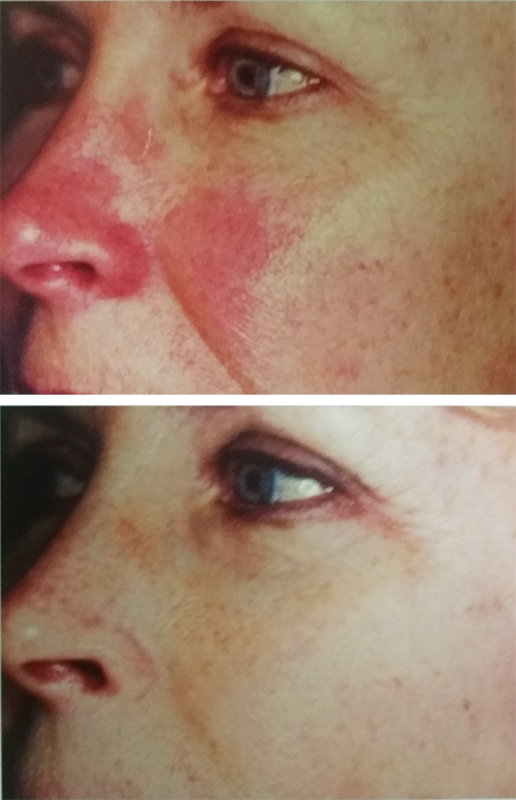A friend of mine says Rosacea is acne. Is this true?
Linda T. – Sausalito
Rosacea is often incorrectly referred to as “Adult Acne”. Historically one subtype of Rosacea was initially called “Acne Rosacea”. We now know that there is no connection between the two and the biomedical processes are different for each.
According to current research, Rosacea appears to be linked to a dysfunction of the body’s natural immune system. With this knowledge we know to treat with medications designed for their anti-inflammatory benefits as opposed to antibacterial effects. In fact, exfoliating acne medications like Retin-A and Retinols may cause the Rosacea symptoms to become worse.
It is important to know that Rosacea is a chronic disorder with 4 subtypes that often begins with a tendency to flush or blush easily. As it progresses it may turn into persistent redness and occasionally swelling across the bridge of the nose and into cheeks, forehead and chin. Small blood vessels, red bumps, pimples and even larger cysts can appear in the affected area. However, unlike acne, there are no blackheads.
There are remedies for each subtype of Rosacea including topical, oral medications and laser treatments. Avoidance of triggers in diet and lifestyle can also help. A qualified dermatologist should be consulted for diagnosis and a treatment plan for both Rosacea as well as Acne.


